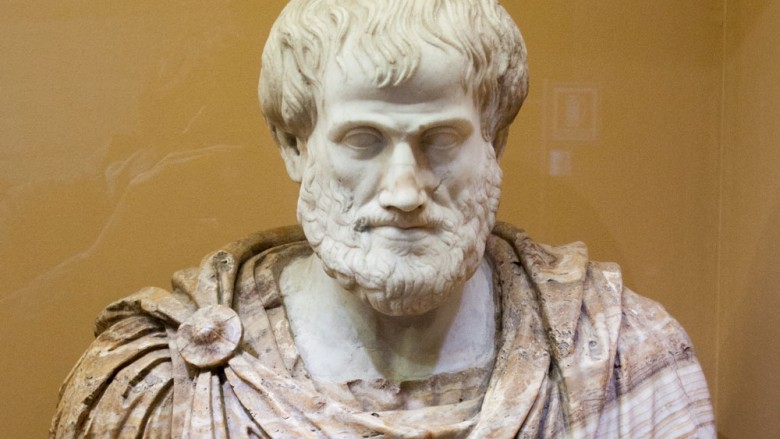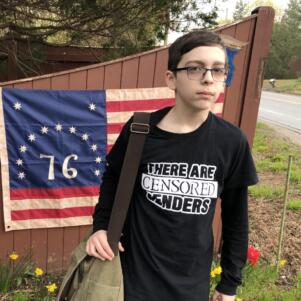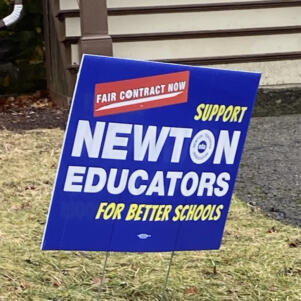Googling Aristotle on character
By Joseph McCleary | September 13, 2015, 0:00 EDT
 Courtesy of Wikimedia
Courtesy of Wikimedia Being good is not in fashion. At least not in America, where notions of puritanical hypocrisy taint any claim of virtue as suspect, probably self-righteous, and perhaps even secretly malevolent. For many high school students, Arthur Miller’s The Crucible remains the defining work for such judgments. But then came Columbine and a host of other tragic and horrific examples of being bad, or to put it accurately, being evil. “Don’t be Evil” goes the Google mantra, and we all nod. Who could disagree with such a sentiment? Especially as it relates to schools.
As it turns out, good and bad character has been the subject of much thought long before Google founders Larry Page and Sergey Brin met at Stanford. Aristotle reflected on the nature of moral development in his Nicomachean Ethics, and his book remains the locus classicus of any informed ethical consideration. The notion of good habits, or virtues, is central to his philosophy of human behavior. These good habits have their counterpoint in bad habits, known as vices. A person with many good habits would be of good character and one with many bad habits would be of bad character. Of course, all of us want friends who fall into the first category.
But what does that mean in practical terms? In Aristotelian parlance it means the deliberate cultivation of good habits. He cites the virtue of generosity without the twin errors of stinginess (giving nothing) and prodigality (giving away even what is needed for oneself). Or, to take another example, being of good character could mean showing courage, while avoiding the pitfalls of cowardice (fleeing danger that must be overcome), and foolhardiness (rushing into danger for no good reason). In every case, the virtue in question is achieved by practicing the good habit while avoiding both extremes of excess and defect.
To be a good friend, one must work to possess the virtues that make friendship possible. I want a friend who is greedy, cowardly, and prone to bad temper. Not! We all want the most virtuous friends as our own, and of course that means we all need to learn good habits when we are young if we want real friendship in our lives. Schools and the home play a key role in this effort. That’s why the character education movement is such a welcome complement to the academic growth fostered by any school that aspires to real effectiveness. Organizations for character education, such as the Josephson Institute and the Center for the Fourth and Fifth R’s (respect and responsibility), have been contributing to this work in schools nationally and even internationally for decades.
Recently, while touring a successful school in South Boston, I asked the principal what he considered to be the most important factors for their achievement. Without hesitating he said, “culture and climate.” What he meant was fostering an environment that encouraged the growth of good habits and discouraged the bad.
This ethos was accomplished through the good example of teachers and staff coupled with many opportunities for students to practice good deeds. As these practices were repeated over time, even years, their beneficial effects were everywhere: students opened doors, said please and thank you, waited politely to speak, smiled at visitors, and did not hesitate to stand up for what is right.
While this kind of training in virtue takes effort and time, its benefits are complementary to every other worthy goal of a school and, without them, most other successes are short-lived. School children learn first-hand that when everyone works at virtue, things get better and better.
As Aristotle observed, happiness is acting in accordance with virtue. Since everyone wants deep and lasting happiness in life, it makes sense to start young and try to be good. Or to put it another way, don’t be evil. If you need convincing, google Aristotle.
Joseph McCleary has been a teacher and school administrator in both public and private schools for more than three decades. He currently serves as the Executive Director of a large public charter school in Massachusetts.
Also by Joseph McCleary:
The power of knowledge in every century











